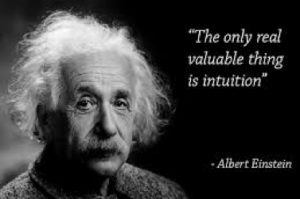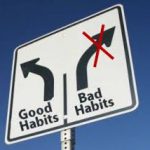Why you should trust your gut instinct

Have you ever been sat in your car at a junction, perhaps waiting for the traffic lights to change, and you’ve somehow known the person in the car waiting next to you is looking at you? So you take a quick, surreptitious glance and invariably, you’re absolutely right. At this point you often decide to stop singing!
Have you ever sensed when a young child in your care was about to dart across a road? Or, did you ever get the feeling that someone, often a friend or relative, was going to call you just before they did? Perhaps you even knew if it was bad news?
All these are examples of when we use our intuition, also known as hunches or our gut feeling.
Intuition has been defined as a higher form of instinct, something animals have relied upon for millenniums. It’s a mental process that gives us the ability to know something without analytic reasoning, bridging the gap between the conscious and sub-conscious parts of our mind.
And perhaps it’s unfortunate that, in our modern times, intuition has been placed lower in importance than more accepted ‘cool-headed’ logic in arriving at decisions. Most of us would be a tad reluctant to admit we used our instincts in decision-making, especially at work. We may be embarrassed to say that we follow our hunches (unless we’re in the bookies) and consequently we’ve reduced our ability to use the power of our own instincts when we need them most.
One of the problems we’ve had with relying on intuition is that it’s hard to measure its effectiveness. Some would say it’s hard to even prove we possess it at all. However, earlier this year the publication Psychological Science published the results of a study which not only proved we have it, but also provided evidence that people can use their intuition to make faster, more accurate and more confident decisions.
In the new study, the researchers came up with a series of experiments to determine whether people were using their intuition to help guide their decision- making or judgment. The boffins defined intuition as the influence of “non-conscious emotional information” from the body or the brain, such as an instinctual feeling or sensation.
Our brains are receiving sub-conscious, or subliminal, messages constantly, both positive and negative. Many of these messages never become conscious thought but they all contribute to our intuition. And they can be just as reliable as a source of accurate information as our conscious reasoning.
The experiments also suggested that the participants became better at using their intuition over time. Just as people can become more comfortable making decisions when they apply logic and reasoning, they may also become more adept at trusting their intuition when they use it more frequently.
As humans we can choose to use both intuition and logical thinking. But both have equal place. And being able to recognise when our gut feeling is trying to tell us something can be absolutely vital, particularly in communication with others.
Often we can sense something is wrong, but the person may not have spoken. It could be the silence, a dip in energy levels or our noticing an ‘atmosphere’. In reality, our brain is receiving messages which translate into these feelings and they are likely just as valid as more overt signals.
Recognising and listening to our ‘inner voice’ can help us to become more aware of the non-verbal signals from others, thus increasing our understanding, empathy and appreciation.
So, like most of our physical and mental powers, regularly exercising our gut feeling can dramatically improve our powers of intuition. And while it would be wrong to fly in the face of logic or rational thinking, harnessing both instinct and reason ensures we have two powerful allies in helping us to make sense of the world we live in…and boy, wouldn’t that be nice?


